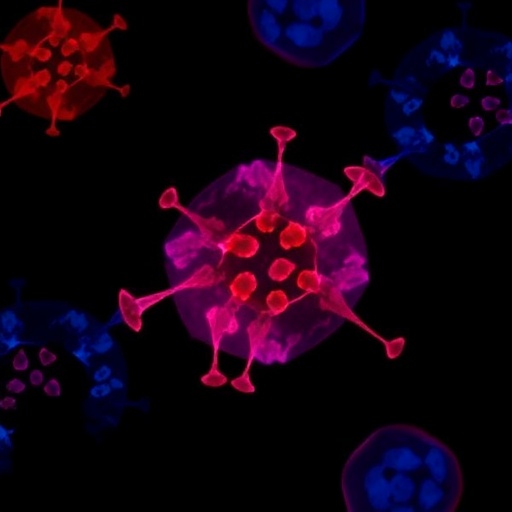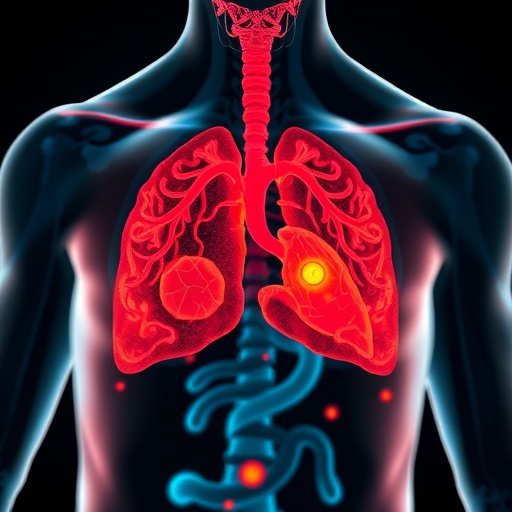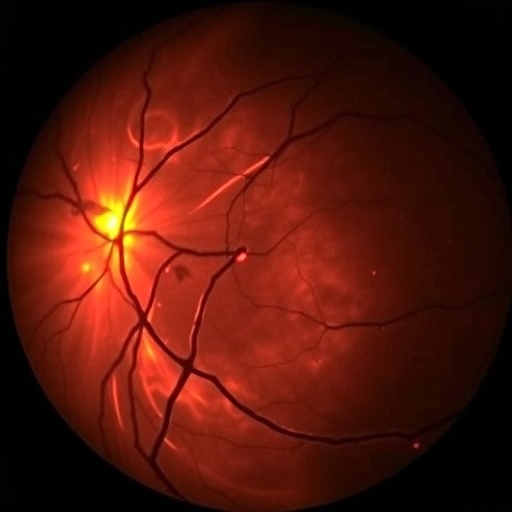
Recent research has brought to light the intricate relationship between testosterone levels and ovarian function, particularly concerning the gene expression of cumulus cells in women presenting with diminished ovarian reserve. The study, led by Tarasconi et al., provides valuable insights into how testosterone influences reproductive biology, potentially paving the way for innovative therapeutic strategies for women facing fertility challenges.
Diminished ovarian reserve (DOR) is a condition that affects a significant number of women, leading to challenges in conception and a higher risk of adverse reproductive outcomes. As fertility specialists strive to understand the underlying mechanisms of DOR, testosterone has emerged as a key hormone of interest, due to its previously underappreciated role in female reproductive physiology. The findings of this study contribute to a growing body of literature suggesting that testosterone is not solely a male hormone but plays a pivotal role in female fertility as well.
The study highlights the biochemical pathways involved in testosterone’s impact on cumulus cells, which are essential for oocyte maturation and overall ovarian functionality. Cumulus cells surround and support oocytes within ovarian follicles, and their gene expression is crucial for successful fertilization and embryo development. The research team employed advanced molecular techniques to investigate the effects of testosterone on the transcriptome of these cells, uncovering significant alterations in gene expression profiles that could influence ovarian reserve and reproductive potential.
One of the standout findings of the research was the modulation of certain gene families associated with follicular development and hormonal signaling. These changes indicate that testosterone may enhance the fertility potential of women with DOR, thereby offering a new perspective on hormonal treatments during assisted reproductive technologies. Given the prevalence of DOR in the population, such insights could be revolutionary for improving the outcomes of fertility treatments.
The study utilized a well-defined cohort of women diagnosed with diminished ovarian reserve, ensuring that the results are relevant and applicable to those facing this fertility issue. By carefully selecting participants and using cutting-edge approaches for gene expression analysis, the researchers were able to draw robust conclusions about the role of testosterone in ovarian biology.
Furthermore, this research raises intriguing questions about the timing and dosage of testosterone supplementation in women with DOR. The findings suggest that optimizing testosterone levels could potentially lead to improved outcomes in assisted reproductive techniques, such as in vitro fertilization (IVF). However, as with any intervention, careful consideration of individual patient needs and responses is paramount in developing effective treatment protocols.
Beyond its immediate implications for reproductive health, the research also contributes to a broader understanding of hormonal interactions within the female body. The interplay between androgens and other hormones, including estrogen, is complex and requires comprehensive exploration to fully grasp its impact on fertility. As such, future research should focus on this intricate network of signaling pathways to uncover further potential therapeutic targets.
The authors of the study call for additional investigations to validate their findings in larger, more diverse populations. There is also a need for longitudinal studies to assess the long-term effects of testosterone supplementation on ovarian function and reproductive outcomes. By expanding the scope of research in this area, scientists can refine treatment protocols and develop more personalized approaches for women struggling with infertility.
In conclusion, the study led by Tarasconi et al. provides compelling evidence for the influence of testosterone on cumulus cells and the gene expression associated with ovarian reserve. As more women seek answers for their fertility issues, this pioneering research offers hope for innovative strategies to enhance reproductive health. The implications of these findings could resonate widely, potentially transforming how we understand and treat diminished ovarian reserve in clinical practice.
The complexities of female reproductive health continue to be a fertile ground for exploration, and as researchers delve deeper into hormonal influences, the potential for groundbreaking discoveries remains vast. The interplay between testosterone and ovarian biology not only broadens our understanding of female fertility but also underscores the importance of considering hormones in a nuanced and context-dependent manner.
As ongoing studies continue to unravel the role of various hormones in reproduction, one can anticipate a future where tailored hormonal therapies might become standard practice in managing diminished ovarian reserve and enhancing fertility outcomes. This area of research exemplifies innovation at the intersection of reproductive medicine and molecular biology, heralding a new era in fertility treatment options.
The groundwork laid by Tarasconi and colleagues marks a significant contribution to reproductive science, emphasizing the need for continuous inquiry into hormonal therapies. Ultimately, such research endeavors aim to empower women globally, giving them the tools and knowledge they need to navigate their reproductive health journey successfully.
The emerging narratives around testosterone and its impact on women’s health could reshape perceptions and medical practices surrounding female fertility, challenging long-held beliefs about hormonal imbalances and their treatment. As the medical community absorbs these findings, the dialogue around testosterone in Women’s health is likely to evolve, encouraging further exploration and understanding.
A comprehensive approach to women’s reproductive health, focusing both on improving ovarian function and understanding the broader hormonal landscape, will be essential to advancing this field. As the conversation continues, the hope remains that women with diminished ovarian reserve will benefit from these pioneering insights, leading to better outcomes in their reproductive journeys.
The intricate dance of hormones that governs female fertility is filled with complexities, and with each new study, we draw closer to unraveling its mysteries. The influential role of testosterone is now clearer, but as research pushes forward, the scientific community stands to learn even more about how to support women facing reproductive challenges.
Subject of Research: Effects of testosterone on cumulus cells gene expression in patients with diminished ovarian reserve.
Article Title: Effects of Testosterone on Cumulus Cells Gene Expression in Patients with Diminished Ovarian Reserve.
Article References: Tarasconi, B., Bonetti, T.C.S., Primo, D. et al. Effects of Testosterone on Cumulus Cells Gene Expression in Patients with Diminished Ovarian Reserve. Reprod. Sci. 32, 2633–2643 (2025). https://doi.org/10.1007/s43032-025-01906-7
Image Credits: AI Generated
DOI: https://doi.org/10.1007/s43032-025-01906-7
Keywords: Testosterone, Cumulus Cells, Diminished Ovarian Reserve, Gene Expression, Fertility, Hormonal Regulation.
Tags: Advanced molecular techniques in reproductive studiesBiochemical pathways in reproductioncumulus cell gene expressionDiminished ovarian reserve researchFemale reproductive biologyFertility challenges in womenHormonal impact on fertilityInnovative therapeutic strategies for DOROocyte maturation processesRole of testosterone in female healthTestosterone and ovarian functionUnderstanding ovarian functionality




